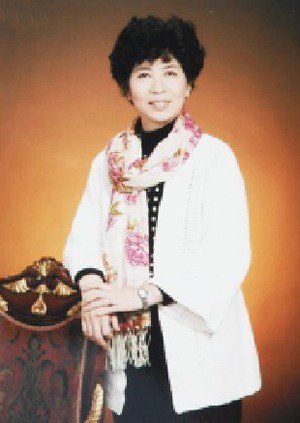Making My Own Contribution to Gender Studies
 |
| Li Huiying [File Photo] |
My interest in women's studies began early on in the 1990s when I participated in a women-related research project at the Party School of the Central Committee of the CPC, where I was served as a young teacher.
Like a magnet, women's studies had a great attraction for me. When the Fourth World Conference on Women took place in Beijing in 1995, I finally ended my literary pursuits and devoted myself to researching women's issues.
I did ask myself whether it was worthwhile. I find that it is an inner spirit, a realm of life, a beautiful soul and an independent personality that guides me to review my life and that of other women.
At that time, it was a marginal subject in the Party School of the Central Committee and some even thought that it was funny wasting my time on such research. In order to express my true feelings, I wrote an article "Why Should I Make Studies on Women?" in the journal of the Party School. Although, it seems nothing changed on the surface, my spiritual world changed completely. In other words, women's studies reshaped my life.
It's Hard to Set Up 'Gender and Public Policy' Course in Party School, But I Succeed
After the conference in 1995, gender studies and gender mainstreaming gradually become the key words throughout the Beijing Platform for Action. My research field also changed into that of gender and public policy.
In 1999, the Sociology Research Office of the Scientific Socialism Department at the Party School of the Central Committee was permitted to recruit graduate students in sociology. That meant a series of sociology courses could be established at the same time. For me, it was a good opportunity to put women's and gender studies into the scope of the discipline. I applied to the Research Office to set up a Gender and Public Policy course, but was rejected.
Even so, I still did not give up. I tried my best to convince school leaders that the opening of such an up-and-coming subject would enrich the perspective of sociology. I said that I changed my major from literature to sociology not because of fame or fortune, but out of love for the specialty. I even shed tears in front of them, which touched my colleagues so much that they decided to agree to my proposal. At last, Gender and Public Policy became a compulsory course in the department.
Public Policy Advocacy of Gender Equality
The course was not only set up for regular and on-the-job graduate students, but also for leading and local officials in 30 party schools across the country.
The final purpose for us to carry out the training among civil servants was to put gender equality into the decision-making mainstream and help us form an enforced gender equality public policy, so as to change people's habitual behaviors.
In other words, the training is only the first step; the second step is the desire for leaders to take action. The third step is to form a gender-sensitive public policy. We hope that gender equality policy advocacy can be carried through during the whole process.
Since 2005, we have actioned two projects on the advocacy of gender equality public policy. The first one is for promoting the former Ministry of Social Security to set up paternity leave for fathers. Although it is highly-supported by the public, there have been no further steps made by the related departments.
The second project is to revise the village regulations with a view to solving the land rights of women. We made an eight-month investigation at the preliminary stage, make trainings for civil servants in pilot villages and counties. We found village-leveled partners to revise the village regulations and then spread the related experiences to the townships and counties. After that, at the end of 2011, a high-leveled advocacy scheme to highlight gender equality regulations in village was carried out in Beijing. The advocacy was successful at last. A correction of the policy which gave preferential treatment to boys in village regulations was also put into the twelfth Five Year Development Plan. A series of conferences to protect women's land rights were launched by the All-China Women's Federation (ACWF), the Ministry of Agriculture and Ministry of Civil Affairs, and activities on the revision of village regulations were carried out in several provinces and cities across the country.
As a U.S.-based, feminist scholar once said: "women, the longest revolution". I'm willing to make my own contributions to this long revolution myself.
(Source: cnwomen.com.cn/Translated and edited by Women of China)
Please understand that womenofchina.cn,a non-profit, information-communication website, cannot reach every writer before using articles and images. For copyright issues, please contact us by emailing: website@womenofchina.cn. The articles published and opinions expressed on this website represent the opinions of writers and are not necessarily shared by womenofchina.cn.


 京公网安备 11010102004314号
京公网安备 11010102004314号